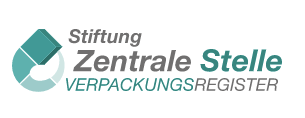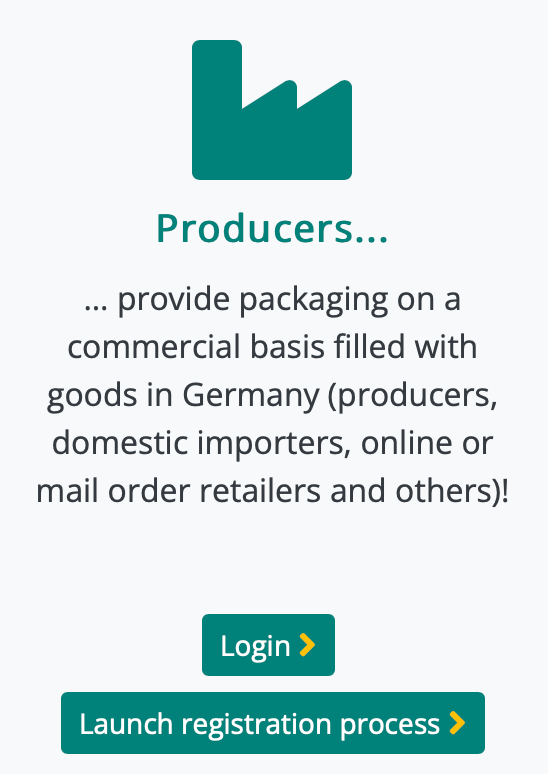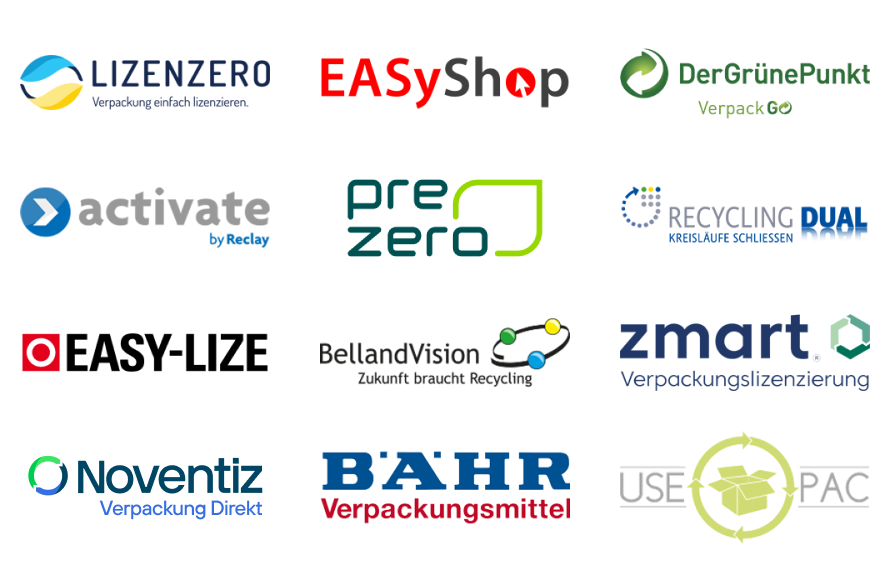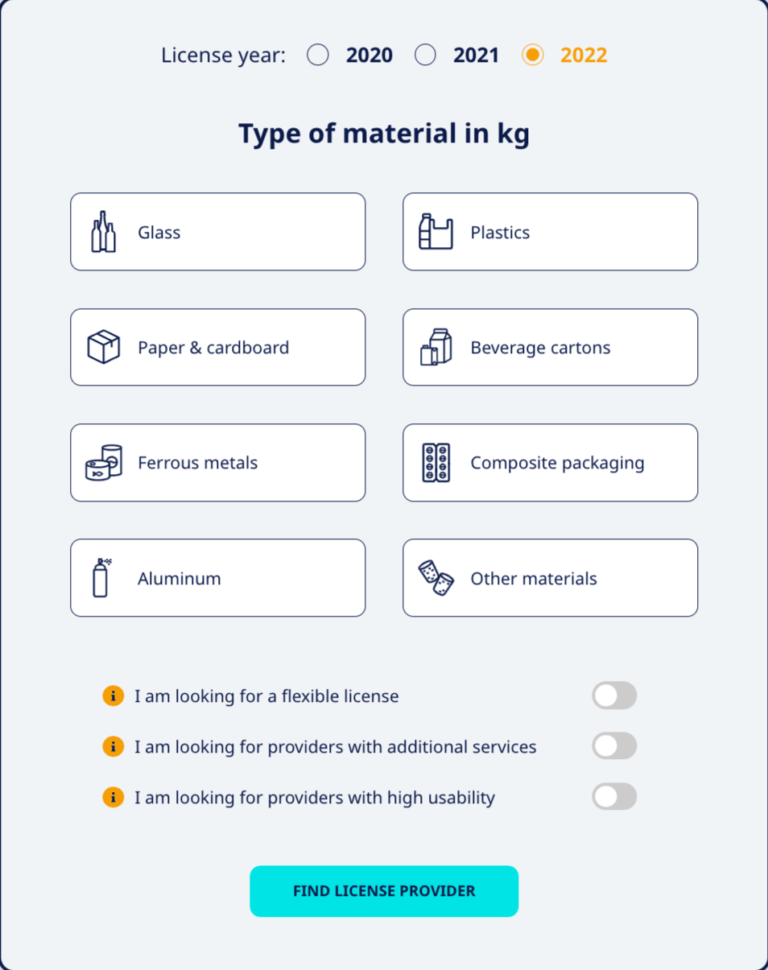German Packaging Act:
Who is affected?
The new German Packaging Act (VerpackG) has been in place since 1.1.2019. Recently, in mid 2021, the law was updated. Since then, the most current version, the 2021 amendments of the Packaging Act include additional regulations specifically for e-commerce, fulfillment services and also foreign companies that ship their products to Germany. The 2021 amendment also includes new duties regarding service packaging and transport packaging. In this guide, we will give you a complete overview on the German Packaging Act. After reading this guide, you will know if your business is affected by the law and what needs to be done to be fully compliant with the law.
How to read this guide:
In the first part we explain the content of the law to you. We will give you a structured overview on all the duties there are. We provided definitions for all terminology that the law introduces and give step-by-step instructions on how to comply with each requirement that are easy to follow. If you are already clear about your duties, you can use our free packaging license calculator to find the best offer for a German packaging license.
The second part of this guide comprises of detailed case analyses for the most common business types that usually need to deal with the law. Read the section with the generic business type that applies to your business the most to learn more about how to deal with the German Packaging Act in specific scenarios like drop shipping products to German customers or selling goods to German retailers.
If you still have open questions after reading this guide, feel free to contact us using the contact form at the end of this page.
Content
German Packaging Act at a glance
All businesses that place packaged goods of any kind onto the German market are responsible to participate in the costs for recycling of those packagings. The German Packaging Act (VerpackG) puts this main principle into legally binding law and defines suitable processes and structures for this. To make sure that all manufacturers pay their fair share of the total recycling costs in Germany, two different institutions have been created:
The first institution is the Central Agency Packaging Register (ZSVR). It is an official state-run authority that ensures that all affected businesses are duly registered. For this goal, they are running an open and transparent registry where all manufacturers and merchants need to be listed in – the LUCID packaging register. Since the registry is public, anyone can check if a business is officially listed.
The second institution are recycling and waste management businesses that are responsible for collecting and sorting the packaging waste from the manufacturer’s products and recycling it properly. These businesses are called “dual systems”. All manufacturers pay their proportional fees for recycling to them. In return, they get the right to put their amount of packaging into circulation in Germany. This concept is called “packaging license” in the VerpackG.
There are 4 main duties that manufacturers and retailers need to fulfill: (1) Registration at the ZSVR, (2) Buying a packaging license from a dual system, periodically (3) reporting of annual packaging volumes and (4) submitting a declaration of completeness.
Below, we explain the 4 main duties in detail:
1. Registration at the ZSVR (free of charge)
All companies that place products on the German market that are wrapped in some sort of packaging, need to register their business and all of their brand names at the ZSVR. This can be done online and free of charge in the LUCID Packaging register.
Prerequisites
In general, all manufacturers or initial distributors of packaging material in Germany fall under the German Packaging Act and therefore need to register in the LUCID Packaging Register. An initial distributor according to the VerpackG is any business that is the first to commercially put any packaging that is filled with goods on the German market which typically accumulate as waste at the private, final consumer. You can determine if you fit to this definition if you can answer all of the following questions with yes:
- Do you act on a commercial basis? The law does not apply to you if you act as a private person
- Does your business deal with products that have some sort of packaging? This could be any part of packaging like bottles, can, box but also additional packaging for shipping and filling material.
- Do you fill the packaging with goods or add parts of the packaging to the goods? The VerpackG applies to businesses that use packaging material to fill it with their products, not to the producer of empty packaging material. The responsibility for packaging lies with the business who adds a packaging to a physical product.
- Can you be regarded as the first one that puts those products with packaging on the German market? The initial distributor can be the manufacturer in Germany or the importer when packaged goods are imported to the German market from abroad. If you are uncertain if your business can be regarded as initial distributor in Germany, check the information about generic groups in section 2.
- Is the packaging likely to be disposed in private households or similar “comparable sources”? The so-called comparable sources of waste generation are restaurants, accommodation establishment, canteens, bakeries, commercial kitchens or offices.
Registration Process
- Registration must be done online on the website of the LUCID Packaging register which is run by the Central Agency Packaging Register (ZSVR).
- Registration is free of charge and has to be carried out personally by the affected producer. It cannot be delegated to any third party.
- Important: Choose “Launch registration process” for a “Producer” (see right picture)
- Follow the instructions on the registration form: you need to specify your business data including VAT number (starts with a two letter country code) or your taxpayer reference number (11 digits) and a contact person in your organization.
- Also specify all brand names under which you place products on the German market
- After completing the registration process, the ZSVR will send you your registration number via e-mail. This number is also called ZSVR number, LUCID number or packaging EPR-registration number (Extended Producer Responsibility). You will need this number to prove your registration to a dual system or to Amazon/eBay.
Deadline
The law explicitly demands that all duties need to be addressed by producers from the first packaging. There is no de minimis limit. Especially the requirement of registration in the LUCID register must be fulfilled before putting any packaging into circulation in Germany. We recommend to complete the registration process as soon as possible because the LUCID registry is public and therefore competitors can check if your business is registered. In case of no entry in LUCID they could file legal actions against you. Failure to comply with the requirements of the Packaging Act could result in fines of up to 200,000 € and a sales ban.
New since July 1st, 2022:
Additional Registration Requirements
Before the 2021 amendment of the German Packaging Act, registration was only mandatory for those producers who put product and shipping packaging on the market. With the amendment of the VerpackG in July 2021, the legislator now also stipulates a registration obligation in the following cases:
- From July 1, 2022, transport packaging and reusable packaging must be reported as well. Therefore, the companies that circulate this type of packaging exclusively, must now also register with LUCID and report those quantities there. However, transport packaging and reusable packaging quantities are not subject to system participation and still do not require a packaging license.
- The final distributors of service packaging (i.e. restaurants, snack bars, food retailers, etc.) must also be registered in LUCID by July 1, 2022 at the latest. However, buying pre-licensed service packaging remains possible. In this case, no extra packaging license is required.
2. System participation with a dual system
Producers & merchants need to purchase a packaging license for the packaging volumes that they put into circulation in Germany. The packaging license must be purchased from a so-called "dual system". That's what the recycling companies are called that organize the collection, sorting and disposal of packaging waste in Germany. The license needs to be renewed each year. Verpackungslizenz24 can help you to find a suitable dual system. With our price comparison tool, you can easily find the best provider for your annual packaging volumes.
Not all packaging types require a packaging license. The VerpackG defines different packaging types that are used for different purposes. We first explain those packaging packaging types that are subject to system participation. If you circulate this packing in Germany, you need to count it in for your packaging license. Second, we will give an overview on packaging types that do not require a packaging license.
Packaging types that require a packaging license
The initial distributor of the packaging filled with goods is responsible for proper recycling and thus for the packaging license. For example, if you manufacture products yourself and pack them in plastic packaging and an outer box, you must obtain a license for this packaging if the products end up in private households or other similar places (offices, hotels, restaurants, medical practices, etc.). These similar places are called “comparable sources of waste generation”. If you send your products to customers in a shipping carton, you are also responsible for the shipping carton and the filling material. If you only buy the products from a manufacturer in Germany, pack them in a shipping carton and send them on to the end customer, you are only responsible for the shipping packaging. Your German supplier/manufacturer is then considered to be the first distributor for all packaging components in which the goods arrive. For importers, special rules apply
In general, these types of packaging must be licensed through a dual system:
- Product packaging: Also referred to as sales packaging. Products are sold to the customer in these individual packages. This covers all primary packaging in which products are protected. Examples are bottles, cans, blister packs, stand-up pouches, cartons, plastic foil. Important: all closures are also considered part of the packaging.
- Shipping packaging: Also called secondary packaging: This includes packaging, foils, all filling and padding materials such as bubble wrap, adhesive tapes, etc. that are additionally attached for shipping to the end consumer and are intended to support shipping or enable it in the first place. An example of this is a shipping carton in which packaged products are sent to the private end consumer by a shipping service provider.
- Outer packaging: Is a special form of sales packaging. Outer packaging combines several sales packaging and forms sales units that are sold to private end consumers. When classifying as outer packaging, it is important that this usually remains with the customer and is disposed of with private household waste. An example is the plastic wrap that 6 PET water bottles are wrapped in
- Service packaging: This type includes all types of packaging that is only attached to the products at the point of sale and given to the end consumer. Typically, these are the bag of bread rolls at the bakery, the packaging of meat at the butcher, to-go packaging of meals and beverages from snack bars for outdoor consumption like the coffee-to-go cup.
The ZSVR has published a precise overview with many examples to evaluate of the need for system participation in individual cases: The catalog of packaging lists packagings that require a packaging license.
Packaging types that do not require a packaging license
- Transport packaging: All packaging components that are required for transporting the goods to the point of sale are considered transport packaging. This category usually includes packaging such as pallets, cardboard boxes or plastic film to protect a delivery to the wholesaler. They are also referred to as B2B packaging because they usually only occur between 2 companies. Since this packaging does not end up in the waste of private end consumers, there is no obligation to license these packagings with a dual system. As part of product responsibility, however, the distributor must organize the disposal of this packaging in coordination with its B2B customers.
- Service packaging with pre-licensing: Only for service packaging it is possible to purchase pre-licensed packaging from packaging retailers. The system participation obligation of the company that ultimately hands over the service packaging to the consumer (final distributor), e.g. the baker that gives a bag of bread to its customer or the café that hands out coffee-to-go cups, is then fulfilled by the packaging retailer. The final distributor does not need to report these quantities does not need his own license for this pre-licensed packaging.
- Non-Packaging: An item may be part of retail packaging in some cases and considered as a product itself in other cases. For example, if eyeglass cases, jewelry boxes, bags, tumblers, and hangers are sold directly as products, they do not qualify as packaging. However, if they are used exclusively as packaging for another product and do not have the character of a product on its own, they are considered normal product packaging and are subject to participation. The ZSVR has published a guide on this subject, which can be found here.
Determination of the packaging quantities
The licensing of all packaging that requires system participation can be done with a dual system. To calculate the correct costs, the dual systems classify packaging in different types of material. First, you need to check all your packaging and choose the correct material type. Then, you weigh all individual packaging and multiply the weight by the number of packaging that you expect to put into circulation in a calendar year.
The dual systems classify the material types as follows:
- Glass
- Paper, cardboard, cardboard
- Ferrous metals
- Aluminum
- Plastics
- Beverage cartons packaging (e.g. the TetraPak)
- Composite packaging (all packaging consisting of non-separable layers of different materials)
- Other materials
Deadline
The packaging license must be purchased before the packaging is put into circulation. Make sure to purchase your license under the same LUCID registration number that you received after completing your registration in the packaging register.
3. Data Reporting
As a producer/merchant you are obliged to report your packaging volume regularly to your dual system and to the LUCID packaging register. At the dual system, your reported data is used to calculate your fair share of recycling costs for the packaging license. You need to report the same data (same kg-volumes of each material type) to the LUCID system as well. Here you need to specify the dual system where you pay for your packaging license. This serves as a declaration that you purchased a packaging license. If you make adjustments to the quantities during the year, this must always be done both in LUCID and in your dual system. Rule of thumb: the quantities listed in LUCID and with your packaging license provider must always be identical and must always be submitted under the same registration number.
Submission of the data report
- Initial data reporting: When participating in a dual system for the first time, you enter material types and quantities for a specific year using your LUCID registration number. You must then enter the same quantities in LUCID as a proof of system participation.
- If necessary, quantity reports during the year: Some dual systems offer the option of making changes to the quantities for the current year during the year. For example, if it is foreseeable that the calculated quantities for the year will be exceeded or fallen short of. It is also possible when a quarterly reporting of quantities has been explicitly agreed with a dual system. In this case, each subsequent report to the dual system during the current year must also be reported in LUCID.
- Actual volume quantity reporting: After the end of the calendar year, the final quantities placed on the market are to be recorded (ACTUAL quantities) and must be reported to the dual system and LUCID, as there may be changes compared to previously calculated quantities.
- Planned volume reporting: Also known as forecast quantity report: A new forecast for the coming year must be made after the end of the previous year. This quantity report (PLAN quantities) is also entered in LUCID. Depending on the contract, some dual systems continue the current contract with the quantities of the previous year if other quantities are not explicitly reported as a forecast. However, the LUCID message for a new forecast message must be made in any case.
Deadline
The deadlines are different for each dual system. Your provider should communicate important deadlines to you by email. Those deadlines should also be specified in your contract. To avoid any missed deadlines, we recommend that you setup a notification for all deadlines in your calendar. We recommend that you always update your LUCID account directly if you make any data reporting to your packaging license provider. That way you can always be sure that the data matches.
4. Declaration of Completeness (DoC)
If certain thresholds of packaging quantities that a manufacturer puts into circulation in a year are exceeded, the Packaging Act stipulates a so-called declaration of completeness that the manufacturer must submit once a year.
Prerequisites
A producer is required to submit a DoC if he exceeds at least one of the 3 thresholds below: E
- 80.000 kg GLASS or more per year
- 50.000 kg PPK or more per year
- if the total sum of quantities for other types of material (KST, ALU, WB, GKV, SV, NAT) is 30.000 kg or more per year
Creation of the declaration
To properly fulfill the requirements for the declaration of completeness, the affected manufacturer must enter the quantities of the year confirmed by his dual system online in his LUCID account under the menu item “Declaration of completeness”. The declaration can also be submitted by a commissioned third party.
In addition to the information provided by the manufacturer, an external auditor appointed by the manufacturer (e.g. auditor, tax advisor or certified accountant) must confirm the accuracy of the declaration of completeness and the reported quantities for the year. The auditor has to submit an additional audit report for this case to LUCID.
The ZSVR has provided detailed step-by-step instructions on how to prepare the DoC.
Deadline
The audited and confirmed declaration of completeness must be deposited with the ZSVR by 15.05. of the following year at the latest.
Packaging License Calculator
Compare packaging license costs for your volumes across all providers
German Packaging Act:
Affected businesses
Below you will find typical types of companies that somehow deal with packaging in the course of their business. We have explained in detail to what extent these groups are affected by the Packaging Act and what specific obligations they have to fulfill with regard to the packaging license. To find out in more details, click on the group that most closely corresponds to your company:
Producers
Retail shops & gastronomy
This group includes all stationary businesses such as brick and mortar shops, restaurants, bakeries etc. that sell packaged goods to customers.
E-commerce businesses
Merchants that run their own online shop and sell packaged goods to private customers (B2C business). The goods are shipped by a post/parcel service.
Platform sellers, FBA & Dropshipping
Merchants that sell their products on online marketplaces such as Amazon, eBay, Etsy etc. as well as sellers that use fulfillment services or dropshipping.
Importers
Intermediaries
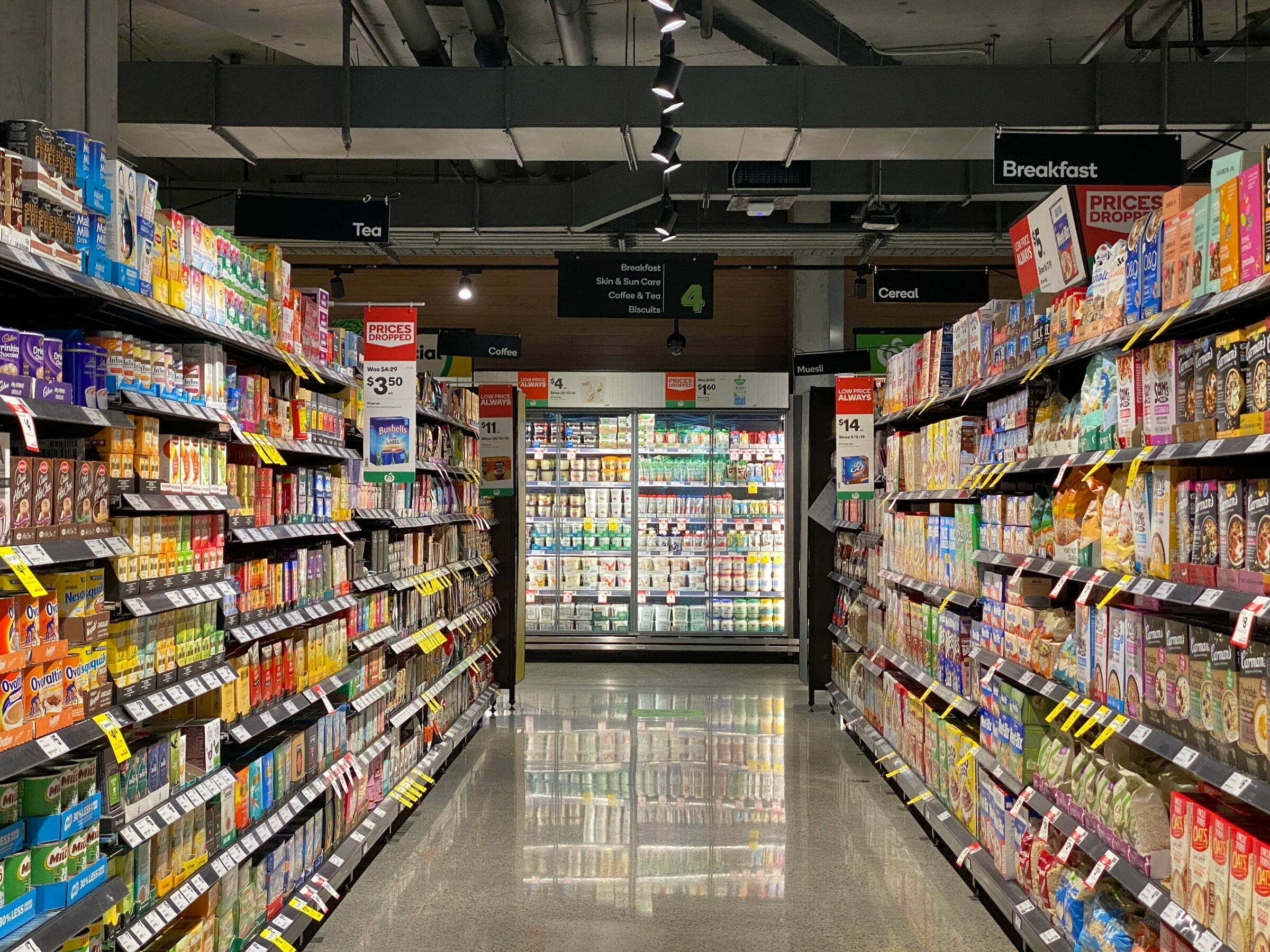
Producers
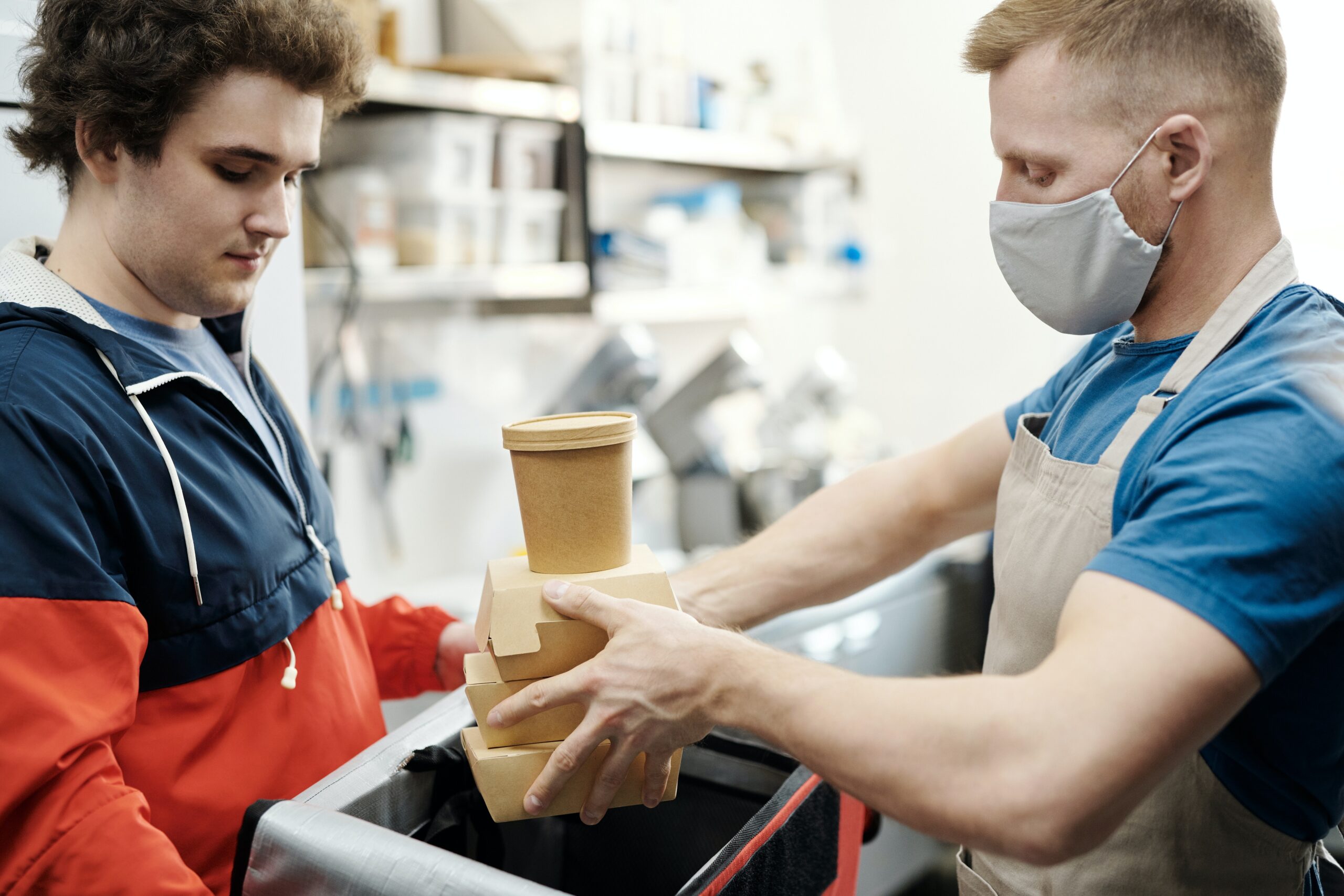
Retail Shops & Gastronomy
This group includes all stationary businesses such as brick and mortar shops, restaurants, bakeries etc. that sell packaged goods to customers.

E-Commerce Businesses
Merchants that run their own online shop and sell packaged goods to private customers (B2C business). The goods are shipped by a post/parcel service.
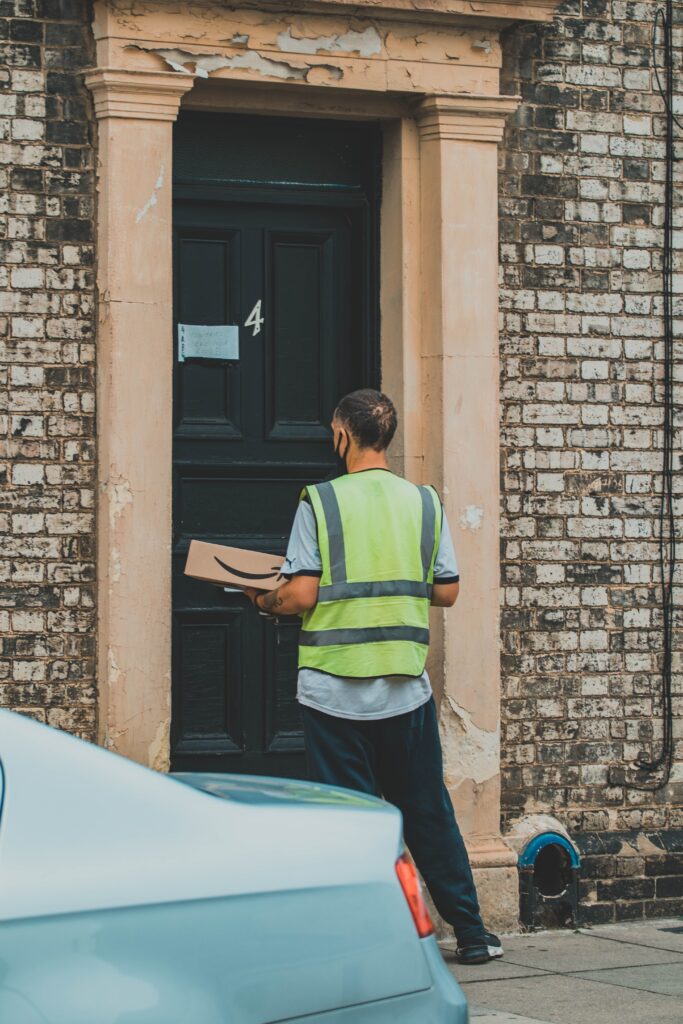
Platform sellers, FBA & Dropshipping
This group covers all companies (German and foreign businesses) that import goods from abroad to Germany.
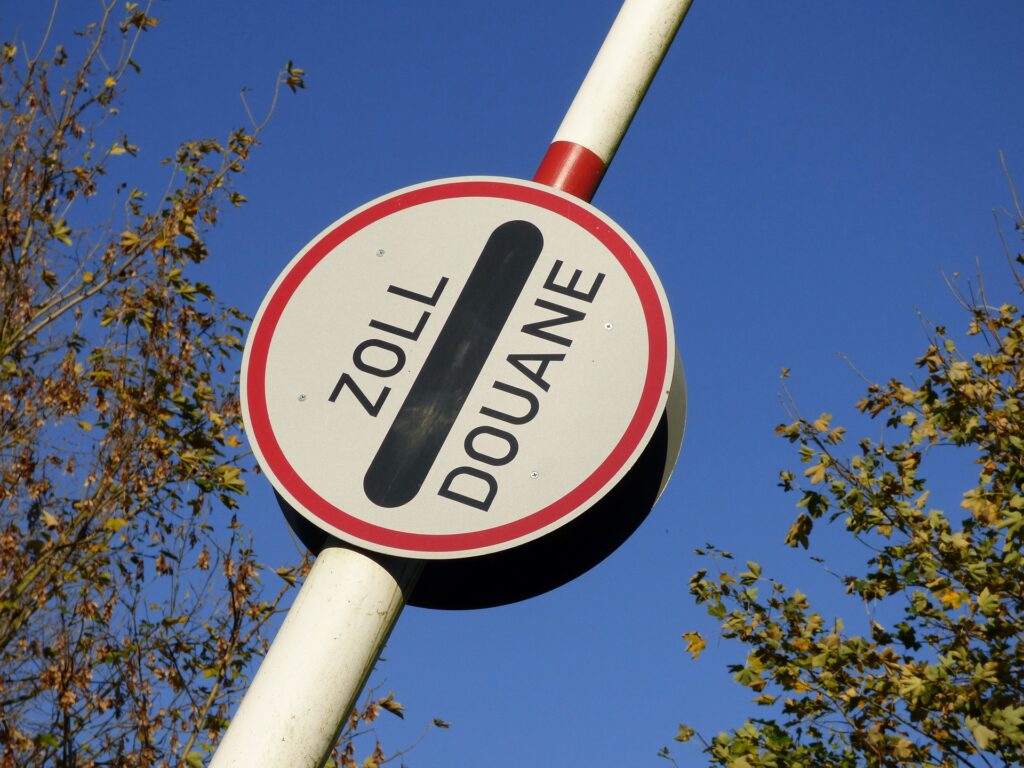
Importers
This group covers all companies (German and foreign businesses) that import goods from abroad to Germany.
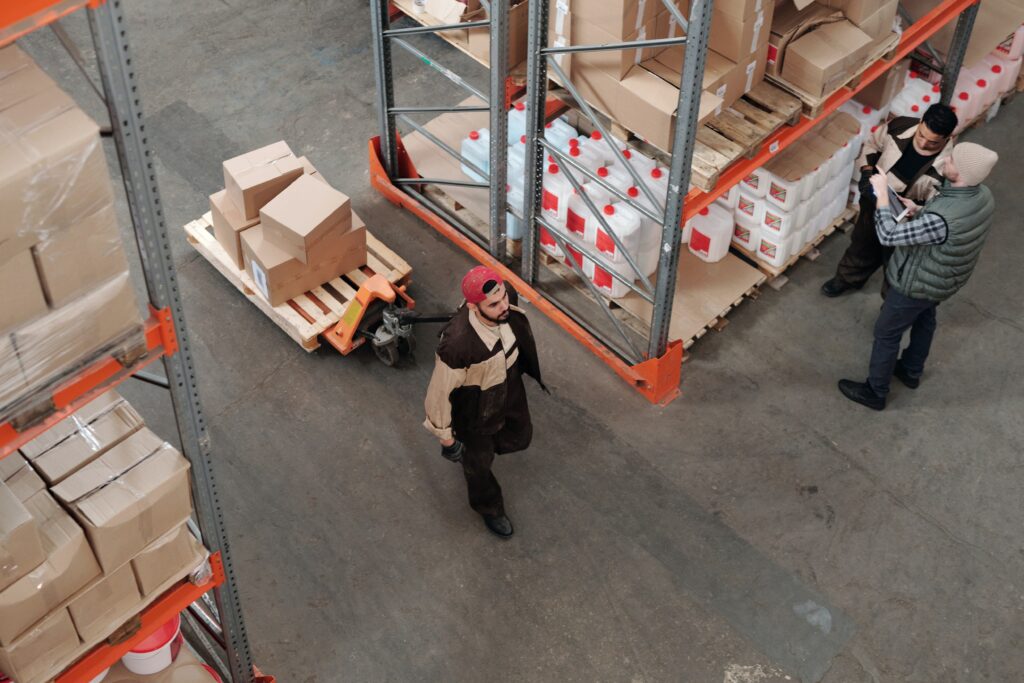
Intermediaries
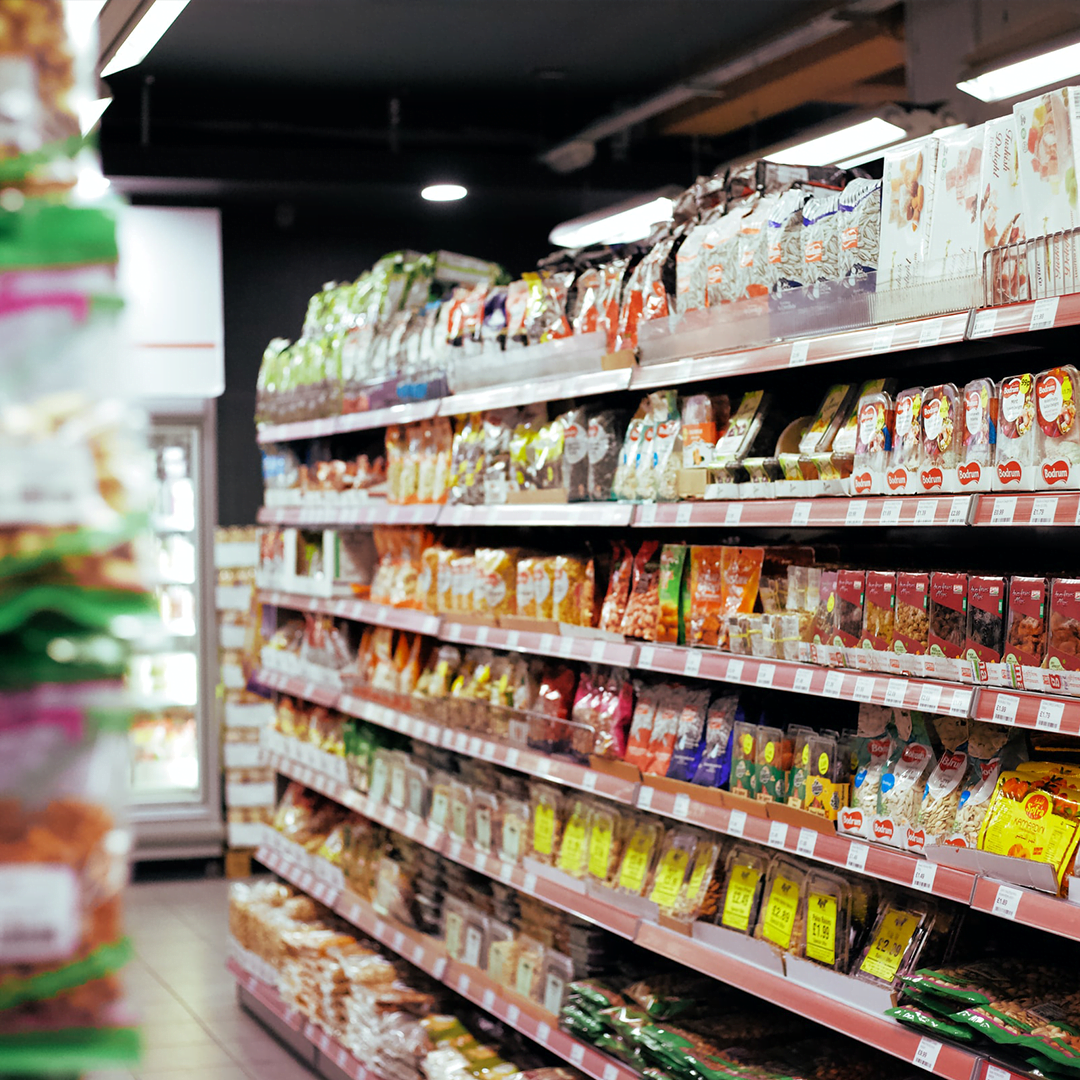
- Producers
You produce packaged goods for the final consumer?
As a producer of products that are intended to be sold to the end user in private households, you are responsible for the products’ packagings and therefore need to register at LUCID as well as license all packagings that you add to your products at a dual system. The 4 duties mentioned above, therefore apply to you.
In this section, we explain some specific issues related to the Packaging Act that affect manufacturing companies.
You have your products manufactured/packaged by suppliers (toll manufacturers)?
If you commission companies that manufacture products on your behalf and already apply product packaging and the products are then distributed under your name or brand, it must be clarified who is responsible for the registration and licensing of this packaging.
Here, the VerpackG makes a clear distinction: Whether you as the client or the supplier are affected by the Packaging Act depends on which companies are named and displayed on the product.
Option 1 – Supplier is mentioned on the product: If the name of your supplier is on the packaging with the addition “manufactured for [name/brand of your company]”, then your supplier is the initial distributor and therefore obligated. You are only responsible for additional shipping package if you add it to the products yourself afterwards.
Option 2 – Supplier is not mentioned on the product: If the supplier is not explicitly named or branded on the product packaging, you as the principal must take care of the registration and licensing as if the packaging had been filled by you. You are considered to be the initial distributor. Markings on the packaging (e.g. due to food law), without naming (identity mark) are not considered as naming of the toll manufacturer.
You produce beverages that are packaged in disposable or reusable packaging?
Packaging that falls under the regulations of single-use beverage or reusable beverage packaging does not have to be licensed with a dual system.
Reusable beverage packaging is precisely defined in the VerpackG:
“Packaging that is designed and intended to be used multiple times for the same purpose and whose actual return and reuse is facilitated by suitable logistics, and encouraged by an appropriate incentive system, usually a deposit.“
For this kind of packaging, producers need to organize take-back and reuse on their own.
The majority of single-use disposable beverage packaging can only be put on the German market when the producer sets up a deposit scheme for it. Single-use beverage packaging is defined as closed packagings for liquid food products that are not considered reusable packaging. Single-use beverage packaging must be registered with the Deutsche Pfandsystem GmbH (DPG). You can find more information on the DPG website. Only the following types of packaging are exempt from the mandatory deposit and are therefore subject to participation in a dual system:
- Packaging with filling volume smaller than 0.1 liters or larger than 3 liters
- Beverage cartons in block, gable or cylinder form, polyethylene tubular bags or film stand-up pouches
- Beverage cartons and bottles containing dairy products or baby foods
- Products that are demonstrably intended for export
NEW since July 1st, 2022:
Extended obligations for one-way bevagare packaging
With the 2021 amendment to the Packaging Act, the legislator has extended the regulations on the mandatory deposit for single-use beverage packaging. Since July 1st, 2022, the following packaging must now also participate in the one-way deposit system and require registration at the DPG:
One-way plastic beverage bottles and beverage cans made of any material with a filling volume (regardless of the actual filling quantity) of 0.1 to 3.0 liters filled with the beverages:
- Sparkling wine and sparkling mixed drinks
- wine and mixed wine drinks
- wine-like drinks and mixed drinks
- alcoholic products and other mixed drinks containing alcohol
- Fruit juices and vegetable juices
- non-carbonated fruit nectars and non-carbonated vegetable nectars
Licensing of those packaging with a dual system is not allowed anymore!
How to distinguish between product, shipping and transport packaging
Only product, shipping and outer packaging must licensed with a dual system. Transport packaging only requires registration and reporting in LUCID. However, there is no licensing obligation for transport packaging. You can easily check yourself if the packaging in question is transport packaging:
- Transport packaging is used exclusively for transport protection between two distributors/retailers (B2B). If the packaging is part of a delivery to the end consumer, it is shipping packaging. This is then subject to licensing with a dual system.
- The transport packaging is not passed on to the end consumer
Classic transport packaging is pallets including protective films, spacers, cardboard for stabilization and large cartons in which many individual products are transported.
During the registration process in LUCID, producers can select if they have transport packaging to report (see image). You only need to report the annual quantities for transport packaging to LUCID. No packaging license is required but the responsible producer needs to organize a proper disposal for the packaging waste.
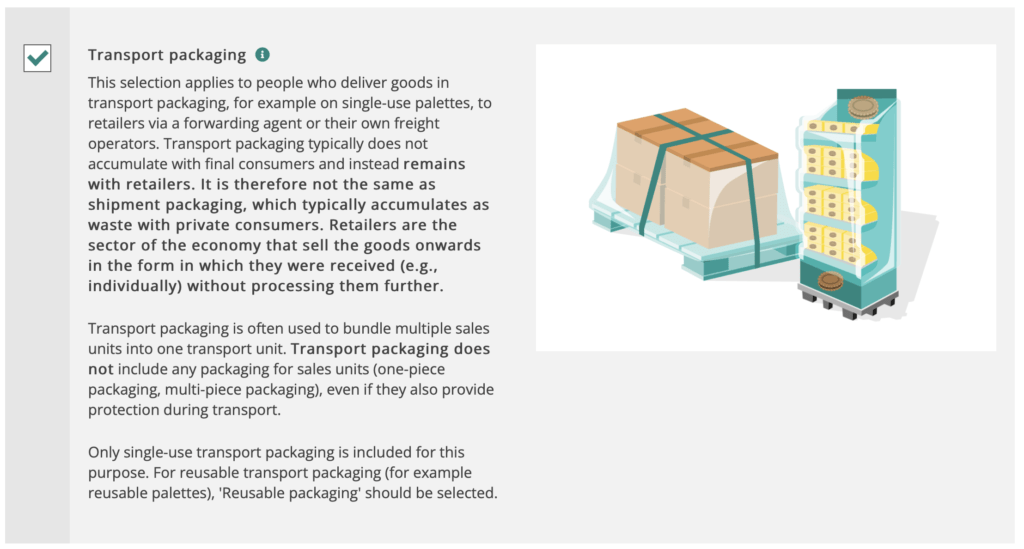
You import goods to Germany from abroad?
Learn more about importing goods to Germany in our section “Importers”. We answer typical questions on how the VerpackG regulates imports and who is in charge of fulfilling the registration and system participation duties.
Checkliste Produkthersteller
In der Verpackungslizenz24-Checkliste für Produkthersteller haben wir Dir kurz und knapp alle wichtigen Punkte zum VerpackG zusammengefasst, die es zu beachten gilt. Dieser Schritt-für-Schritt Leitfaden führt dich durch alle wichtigen Pflichten, um Dein Business gesetzeskonform aufzustellen.
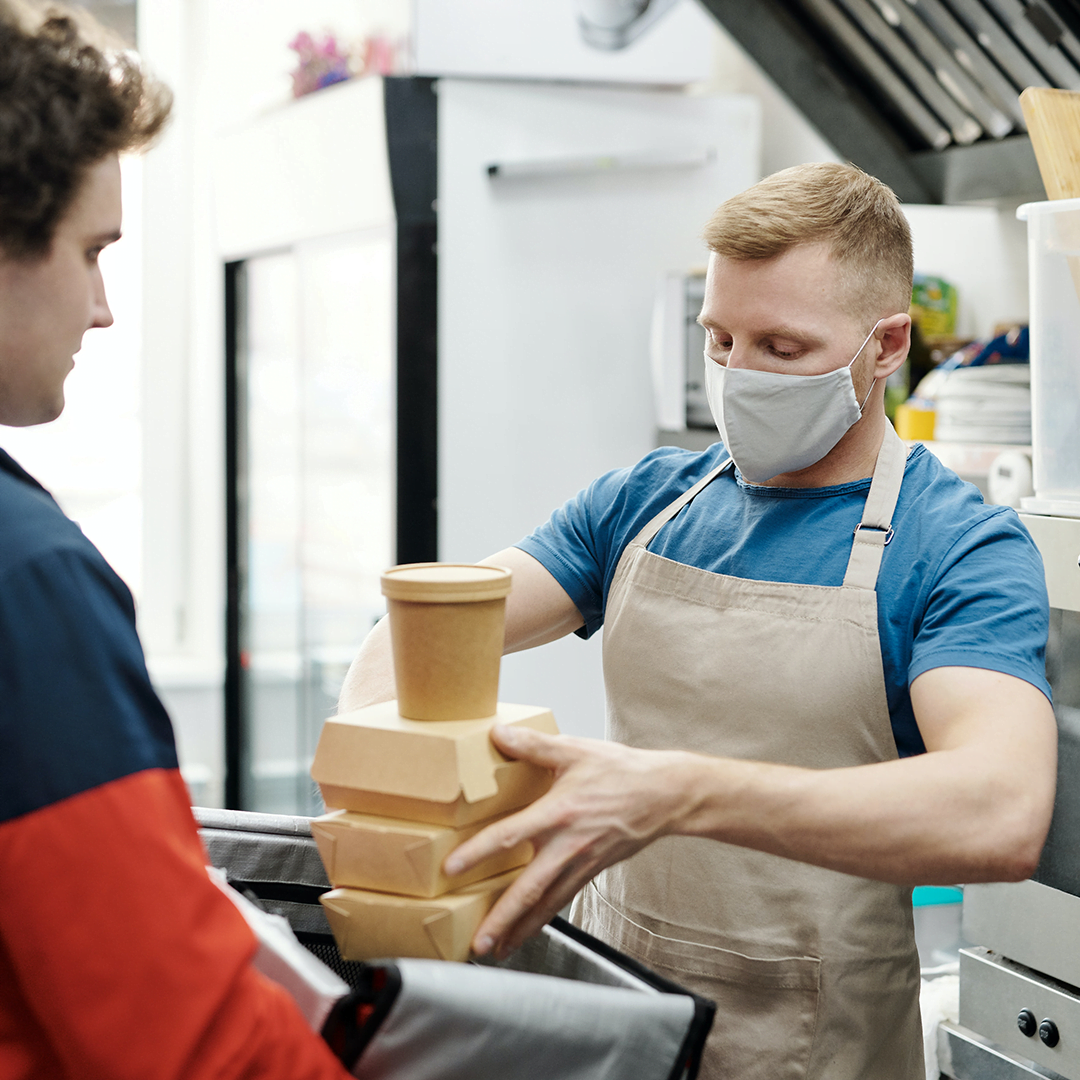
- Stationary Retail & Gastronomy
You are a shop owner in stationary retail or you run a restaurant?
No matter what type of stationary business you run, you should first ask yourself the question: Do I give out products to end customers that are packaged in some way? This could be a bag of bread rolls, a coffee mug, a shopping bag or packaged products in general.
If this is the case, you should definitely check which of the 4 above-mentioned obligations from the Packaging Act you have to fulfill. Detailed questions about the Packaging Act, which are particularly important for operators of stores or restaurants, are explained in more detail in this section.
When is packaging considered service packaging and when do you have to license it?
Service packaging is packaging that is applied by the final distributor of a product, usually shortly before sale. The ZSVR provides a list of examples for orientation:
- Cups and cups for hot drinks incl. lids
- Cups for cold drinks
- Vending machine cups
- Cups for ice cream, milkshakes, spirits, etc.
- Cups for food, e.g. for soups, smoothies, muesli, popcorn
- Plates for soups, menu plates
- Salad bowls, menu bowls with and without lids
- Trays and bowls e.g. for cakes, sausages, salads, chips etc.
- Menu and snack boxes, e.g. lunch boxes, pasta boxes, pizza boxes
- Pouches, wrappers, blanks, tip
- bags, e.g. sandwich bags, thermal bags, wrappings, French fries bags, etc.
- Knotted bags, pouches, tip bags and wrappers sold in the fruit and vegetable trade, in direct sales, at weekly markets or in the fruit and vegetable section of the food retail trade
- Bags, blanks, wrappings, which are handed over at the fresh food counters of the retail trade, the food trade or the delicatessen trade
- Carrier or shopping bags of all kinds
- Wrappers and bags handed in by laundries and dry cleaners
- Nets, floral paper, floral foils, wrappings handed in by florists, horticultural businesses or with Christmas trees
- Other, e.g., cake toppers, toppers, cuffs, carrying aids.
Service packaging is subject to licensing. Exclusively for this type of packaging, however, the legislator grants the possibility of purchasing already pre-licensed service packaging from the packaging dealer. This must be clearly stated in the purchase documents for this packaging. Only in this case, you do not need a packaging license for your service packaging and the registration with LUCID is sufficient.
When you only have pre-participated service packaging in your business, you can declare this during the registration in LUCID (see image below).
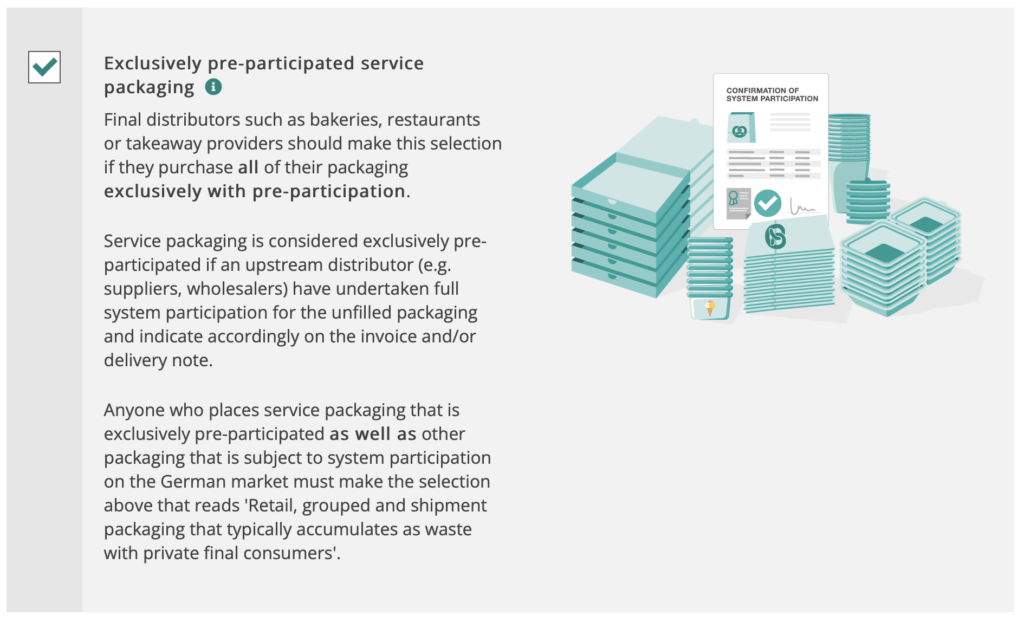
How do you handle transport packaging in which your supplier delivers goods to you?
According to the packaging law, you are only responsible for packaging that you add to the product yourself. If you purchase products from manufacturers or dealers, they are responsible for all packaging in which the products are delivered to you.
However, if you use packaging components of the transport packaging, which were not initially intended by your distributor to be handed out to the end consumer, you need to license this packaging. That’s because your manufacturer/distributor has not licensed transport packaging already. The transport packaging that you reuse in different ways, becomes service or shipping packaging and you are considered the initial distributor for that.
You also sell online?
Find out more in the “Online retailers” section about the specific questions relating to the Packaging Act that arise when dealing with online businesses.
Checkliste Stationärer Handel & Gastronomie
In der Verpackungslizenz24-Checkliste für stationäre Händler und Gastronomien haben wir Dir kurz und knapp alle wichtigen Punkte zum VerpackG zusammengefasst, die es zu beachten gilt. Dieser Schritt-für-Schritt Leitfaden führt dich durch alle wichtigen Pflichten, um Dein Business gesetzeskonform aufzustellen.
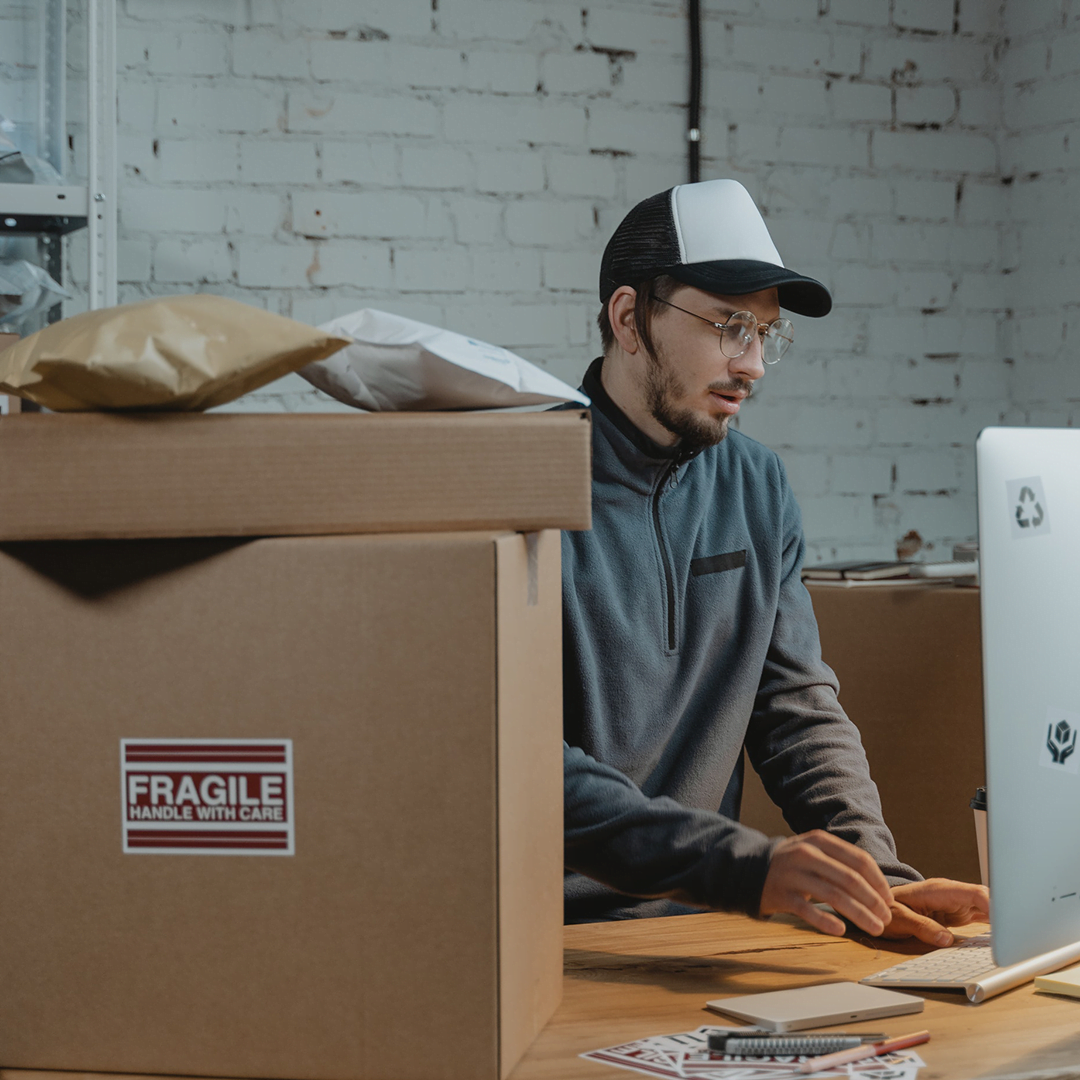
- E-commerce
You sell products in your own online shop?
In this section, we will explain the regulations from the VerpackG that you need to be aware of when you sell and ship products to consumers over the Internet. For example, if you accept orders from customers via your own website with a store system such as Shopify, Shopware or Woocommerce and ship goods yourself.
In short, you are most likely required to register in the LUCID system. The packaging quantities to be licensed depend on whether you only circulate the shipping packaging, or whether you are also considered the manufacturer for the products and must then also license the product packaging as well.
You are the manufacturer of the products? (Own brand)
In this case, you are required to license all packaging components of the products. This applies to the product packaging as well as all shipping or outer packaging that you apply for shipping to your final customers. You may also find useful information in the section “Product manufacturers”.
You purchase products from companies and sell them to private customers?
If you purchase packaged goods from a company based in Germany and you sell them to private customers in Germany, you do not have to take out a license for the product packaging. Only if you additionally apply further packaging, you are also responsible for this. For example, if you pack a packaged product that you have received from your supplier in an additional carton for shipping, you only have to license this shipping packaging.
What counts as shipping packaging?
Primarily, the shipping carton or shipping bags and pouches. Packing tape must also be licensed, as well as any form of filling material (styrofoam, air pads, filling paper, even old newspapers).
What do you need to know about the use of old cardboard boxes or reusing packaging in general?
Shipping materials that have already been used for shipping must be licensed again if they are put back into circulation by you. Used cartons must therefore be treated like any other new shipping packaging.
An exception to the licensing requirement is made if you can provide a prove that the packaging has been previously licensed with a dual system and reported to LUCID by another manufacturer. The written proof must be issued by the previous manufacturer/licensee. It should include details such as the dual system, the contract number and the license year of the previous license.
You use external service providers for picking and shipping - do you have to license the shipping packages?
We have described what you need to consider when using fulfillment service providers with regard to the Packaging Act in the section “Marketplace Merchants, FBA and Dropshipping”. Also, the special rules for drop shipping are explained there.
You import your products from a foreign distributor - do you have to license the product packaging?
If you act as an importer of your products, you are considered to be the first distributor of products intended for the private end consumer according to the Packaging Act. In this case, you have to license all packaging components of the products. We clarify in the section “Importers” whether you or the foreign distributor is regarded as the importer.
Checkliste Onlinehändler
In der Verpackungslizenz24-Checkliste für Onlinehändler haben wir Dir kurz und knapp alle wichtigen Punkte zum VerpackG zusammengefasst, die es zu beachten gilt. Dieser Schritt-für-Schritt Leitfaden führt dich durch alle wichtigen Pflichten, um Dein Business gesetzeskonform aufzustellen.
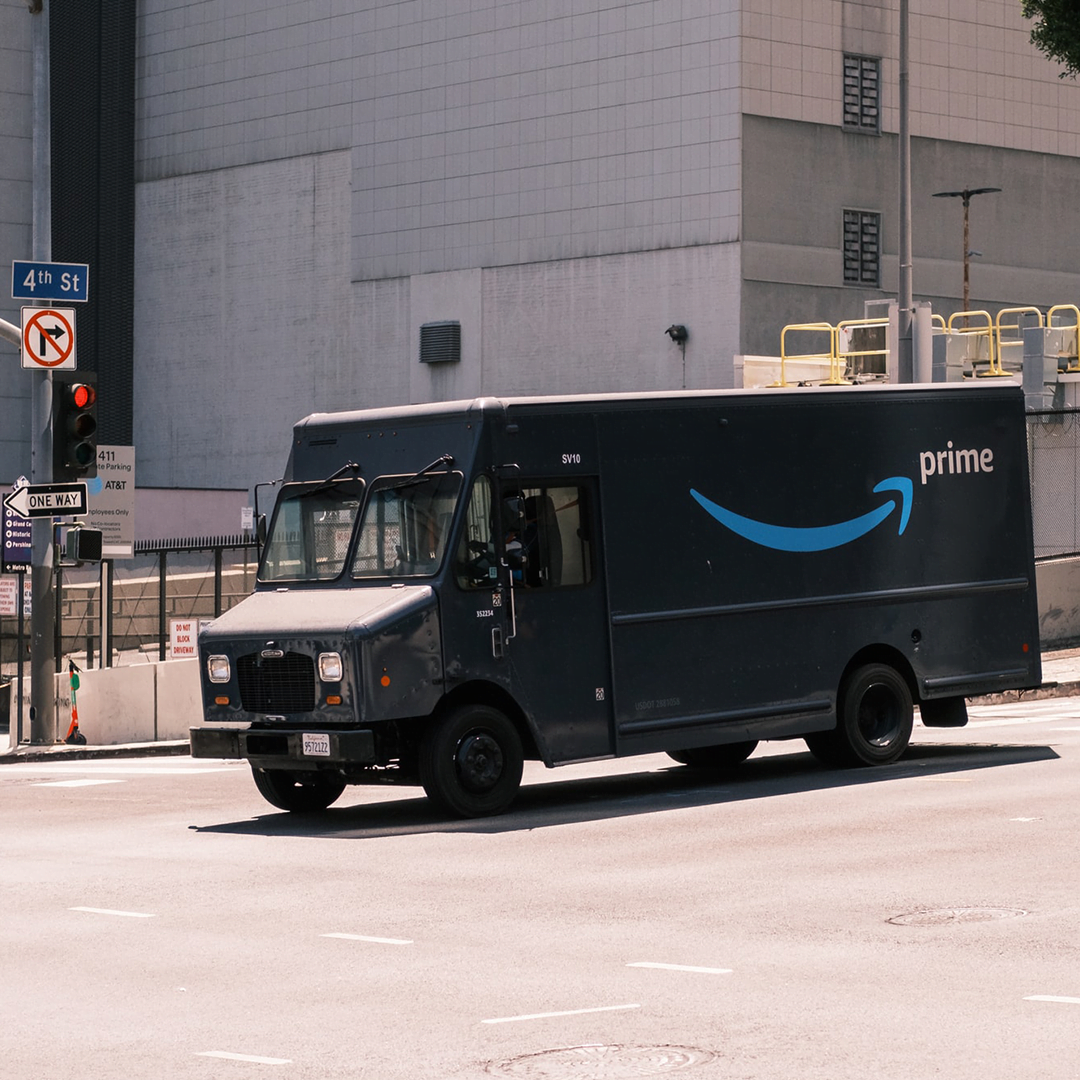
- Marketplaces / FBA / Dropshipping
You sell products on online platforms and maretplaces like Amazon or eBay?
For this kind of online trade, all the regulations that we have explained in the section “E-commerce businesses” apply as well. It does not matter how you sell products online. Even when selling via e-commerce platforms, you are responsible for all packaging that you put into circulation and that ends up as waste for the end consumer in Germany.
In addition, the use of online platforms raises further questions related to the German Packaging Act: What information must merchants provide to platforms to ensure compliance with the Packaging Act? What do you have to consider when using Amazon FBA or other external fulfillment services? We clarify those questions in this section.
Do the platforms check whether their merchants are registered and pay for their license?
Yes, they do! The amendment to the Packaging Act requires operators of e-commerce platforms to provide proof of registration and system participation from all dealers on the platform since July 1, 2022. If merchants do not provide this proof, the platforms are obligated to stop the sales of these merchants on their platform. If you are active on a big platform like Amazon, eBay, Esty and co. you need to provide your LUCID registration number and a proof of the license from your dual system. You can submit this information online in your seller account on the platforms.
The platforms often call this “EPR Registration” (Extended Producer Responsibility). Check out our detailed blog pot for a detailed guide on how to provide this information to all major platforms.
You use dropshipping - what do you need to do?
The question here is whether you as the seller or the shipper needs to fulfill the duties of the VerpackG. There are 2 relevant basic constellations here: Either the shipper is located in Germany or abroad.
If he is based in Germany, he is considered a manufacturer in the sense of the Packaging Act and is responsible for all product and shipping packaging.
If he is based abroad (e.g. dropshipping via AliExpress or Alibaba), it depends on who legally acts as the importer of the goods to Germany. If you are the importer, you must pay the license fees for all product and shipping packaging, register with LUCID and also deposit the brand names of the products you import there. You can find out if you are an importer in the “Importers” section.
You use a fulfillment service - what do you need to do?
Until recently, the fulfillment service provider was required to license the shipping packaging which was added for shipping to the end customer on behalf of the client. However, this was changed in the last amendment of the law!
NeW since July 1st, 2022:
Licensing obligation passes to clients/merchants
With the amendment of the VerpackG in July 2021, the obligations when using fulfillment service providers were newly regulated. From 1.7.2022, the client of the fulfillment service is considered the manufacturer and is therefore responsible for the registration and licensing of the shipping packaging used!
So, if you use Amazon FBA or similar providers, you must license all product and shipping packaging materials yourself and register with LUCID. Your fulfillment provider can provide you with information about the type and quantity of packaging.
Fulfillment services are now required by the law to control if their clients comply with all duties. Therefore, you need to provide your LUCID registration number and a written proof of your packaging license to the fulfillment service provider.
You import your products from a foreign distributor/manufacturer - do you have to license the product packaging?
If you act as an importer of your products, you are considered to be the first distributor of products intended for the private end consumer according to the Packaging Act. In this case, you have to license all packaging components of the products. We clarify in the section “Importers” whether you or the foreign distributor is regarded as the importer.
Checkliste Marktplatzhändler / FBA / Dropshipper
In der Verpackungslizenz24-Checkliste speziell für Marktplatzhändler & Nutzer von Fulfillment-Dienstleistungen haben wir Dir kurz und knapp alle wichtigen Punkte zum VerpackG zusammengefasst, die es zu beachten gilt. Dieser Schritt-für-Schritt Leitfaden führt dich durch alle wichtigen Pflichten, um Dein Business gesetzeskonform aufzustellen.
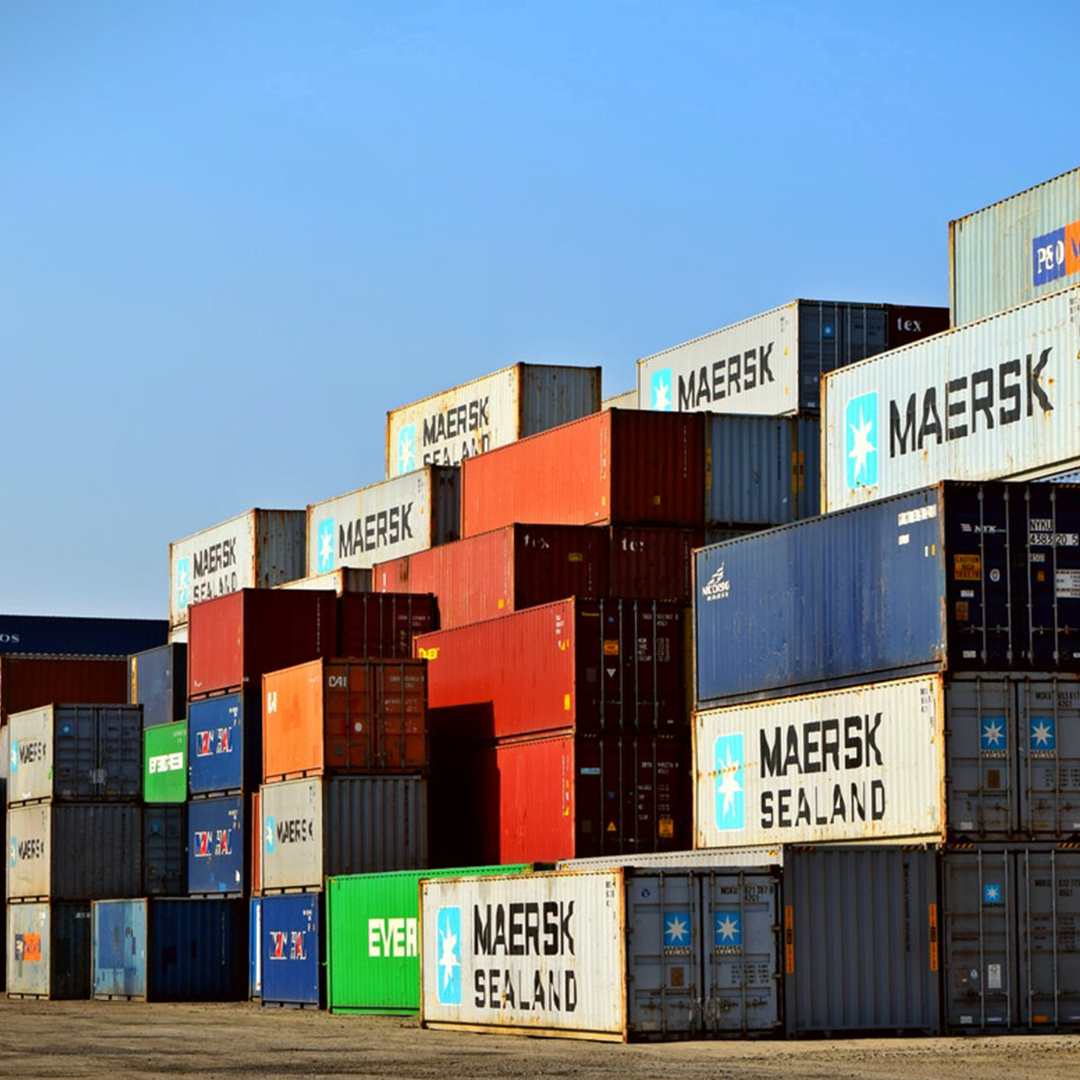
- Importers
You import packaged products to Germany from abroad?
If you import packaged goods into Germany that are intended for the German market (i.e. final sale to the private end consumer in Germany), a packaging license must be obtained for these packaging quantities. The notification of these quantities to the ZSVR is done by registering as a manufacturer in the LUCID portal and reporting the quantities there. The packaging license must be acquired from an approved packaging license provider (dual systems). We discuss in this section, whether your foreign manufacturer/merchant or you need to fulfill the obligations of the VerpackG. We also clarify further questions from the law that particularly apply to the import businesses.
The importer of goods is considered as obligated party according to VerpackG
Who is considered the importer of goods?
The question often arises whether a (foreign) supplier/trader or the domestic company in a B2B transaction is obliged under the Packaging Act to take care of the proper licensing of the packaging. The law stipulates that the party which bears the risk and which has legal responsibility for the goods when they cross the border is responsible for the packaging license. This party is regarded as the importer by the VerpackG and must comply with all obligations under the Packaging Act. The Incoterms applied to the consignment are usually a good indicator to identify the importer.
Here are two examples:
Case 1 – Buyer is deemed to be the importer: A German company purchases packaged products from a foreign company and intends to sell them in Germany to private end consumers (or comparable sources of waste generation). The goods are delivered to Germany from abroad. In the terms of delivery, both companies agree on a delivery ex works (Incoterm EXW). This means, that the German company as the buyer already bears the the risk and has full responsibility for the goods when they leave the factory or the named place of the foreign company. The buyer usually pays for shipping and insurance. Thus, the German company is legally responsible for the goods when they cross the border and is therefore the importer according to the VerpackG. The buyer has to register all packaging in LUCID and needs to purchase the packaging license.
Case 2 – Seller is deemed to be the importer: A German company purchases packaged products from a foreign company and intends to sell them in Germany to private end consumers (or comparable sources of waste generation). The goods are delivered to Germany from abroad. In the terms of delivery, both companies agree on delivery to a specified destination in Germany (Delivered at place, Incoterm DAP). In this case, the foreign seller bears the risk and responsibility for the goods when they cross the border into Germany. Therefore, he is considered as the importer according to the packaging law and must comply with all obligations.
In order to prevent misunderstandings, we recommend that in the case of an import, you agree with your foreign business partners on the subject of the German VerpackG. You can also precisely state in the contract or on shipping documents (invoice, waybill etc.) who will fulfill the requirements of the law.
Are carriers considered importers?
No. A third-party shipper that you commission to deliver your goods to Germany will not be considered the importer by the VerpackG. The principal has to fulfill the requirements of VerpackG
What applies in case of a transit through Germany?
If the packaged goods are only shipped through Germany but are not intended to be sold to any German household or similar end users, then they are not subject to the VerpackG. Therefore, no licensing and reporting obligation apply for this packaging. You can find more information on this topic in the “Intermediaries” section.
NEW SINCE JULY 3rd, 2021:
FACILITATIONS FOR IMPORTERS WITHOUT AN ESTABLISHMENT IN GERMANY
With the amendment of the VerpackG in July 2021, the legislator has established the possibility to designate an authorized representative to fulfill the licensing and reporting obligations on behalf of the company concerned.
Prerequisites for the designation of an authorized representative are:
- The company/importer is obligated according to the VerpackG.
- The company/importer does NOT have its own branch office in Germany.
A written contract must be concluded between the authorized representative and the foreign business.
The authorized representative can fulfill all obligations according to the Packaging Act for his client with the exception of registering in the packaging register LUCID:
- the participation in one or more dual systems
- the submission of data reports on packaging quantities in LUCID and to the dual systems
- the submission of a certified declaration of completeness, if quantity thresholds are exceeded
- fulfillment of the take-back obligations for transport packaging and large-scale commercial or industrial sales and outer packaging
- and participation in a nationwide deposit system for non-refillable beverage packaging subject to deposit.
The ZSVR has also published a detailed information page on this subject.
Checkliste Importeuere
In der Verpackungslizenz24-Checkliste speziell für Importeure haben wir Dir kurz und knapp alle wichtigen Punkte zum VerpackG zusammengefasst, die es zu beachten gilt. Dieser Schritt-für-Schritt Leitfaden führt dich durch alle wichtigen Pflichten, um Dein Business gesetzeskonform aufzustellen.
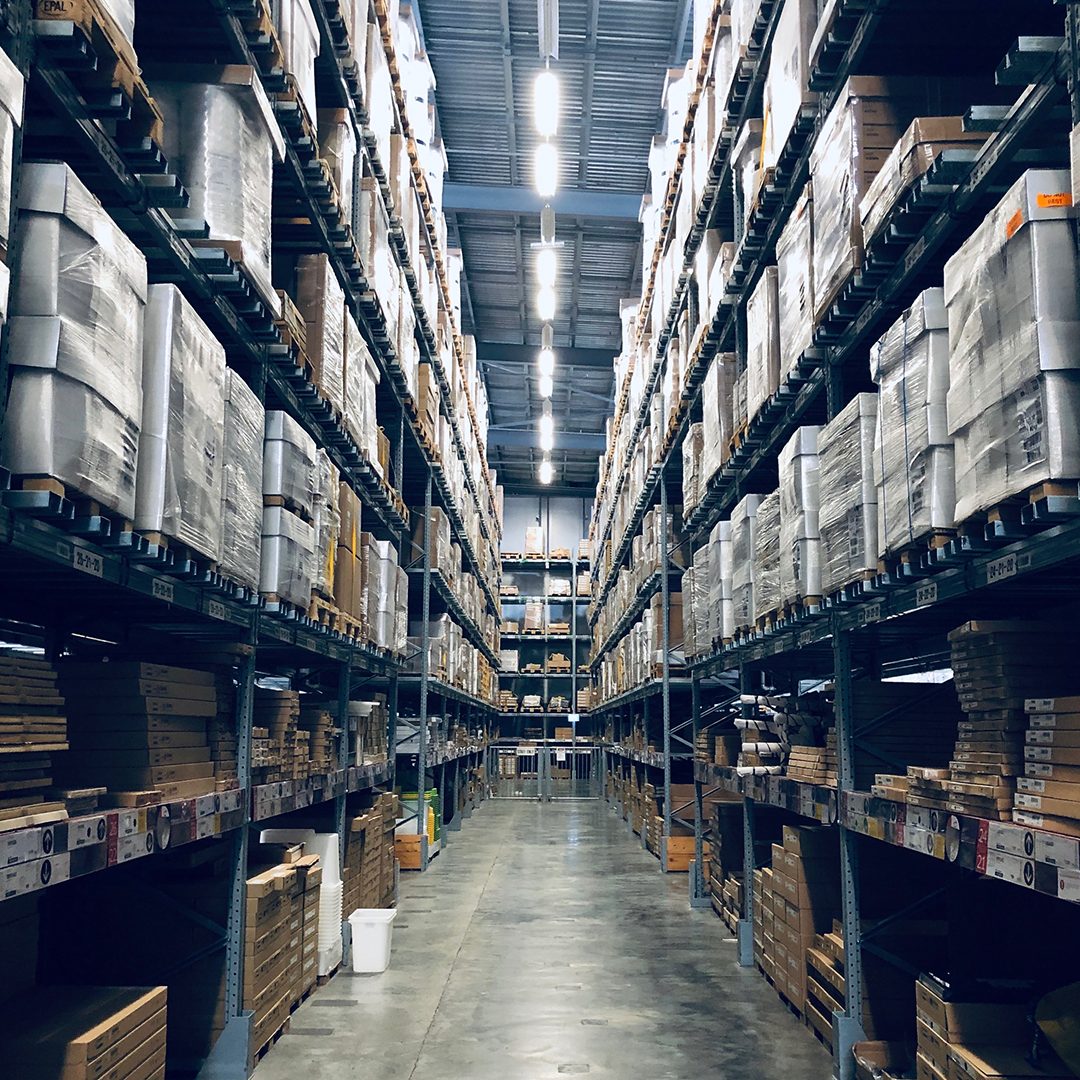
- Intermediaries
You buy and sell packaged goods only B2B?
If you act as an intermediary merchant by buying packaged goods from one company and selling to another company, you first need to determine if the goods at hand are intended to be sold in Germany.
- If the products are not for the German market, the VerpackG does not apply. You are not required to register in LUCID or license your packaging.
- If the products will be sold in Germany and the packaging ends up in private household waste or in similar comparable sources, then you need to check if you are the initial distributor. We will clarify the question in this section.
You purchase packaged products from a German company and resell them to another company
Your German supplier is considered the initial distributor for all packaging components in which the products are delivered to you.
If you add further packaging that remains with the private end consumer or comparable sources (restaurant, hotel, office, practice, etc.), you are required to register and participate in a dual system for this packaging. Transport packaging that you attach to protect the products during delivery to your buyer (pallets, protective films, cartons) does not need to be licensed.
You import packaged products from a foreign company not located in Germany and resell them to another company
Here it depends on whether you are considered an importer – i.e., legally responsible party for the products when they cross the border. If you act as an importer, you must license all product packaging and outer packaging that remains with the end consumer. We have explained in detail how to identify the importer when international business applies. Check the section “Importers”.
If you add further packaging that remains with the private end consumer or comparable sources (restaurant, hotel, office, practice, etc.), you are obliged to register and participate in the dual system for this packaging. Transport packaging that you attach to protect the products during delivery to your buyer (pallets, protective films, cartons) does not need to be licensed.
Checkliste Zwischenhändler
In der Verpackungslizenz24-Checkliste für Zwischenhändler haben wir Dir kurz und knapp alle wichtigen Punkte zum VerpackG zusammengefasst, die es zu beachten gilt. Dieser Schritt-für-Schritt Leitfaden führt dich durch alle wichtigen Pflichten, um Dein Business gesetzeskonform aufzustellen.


